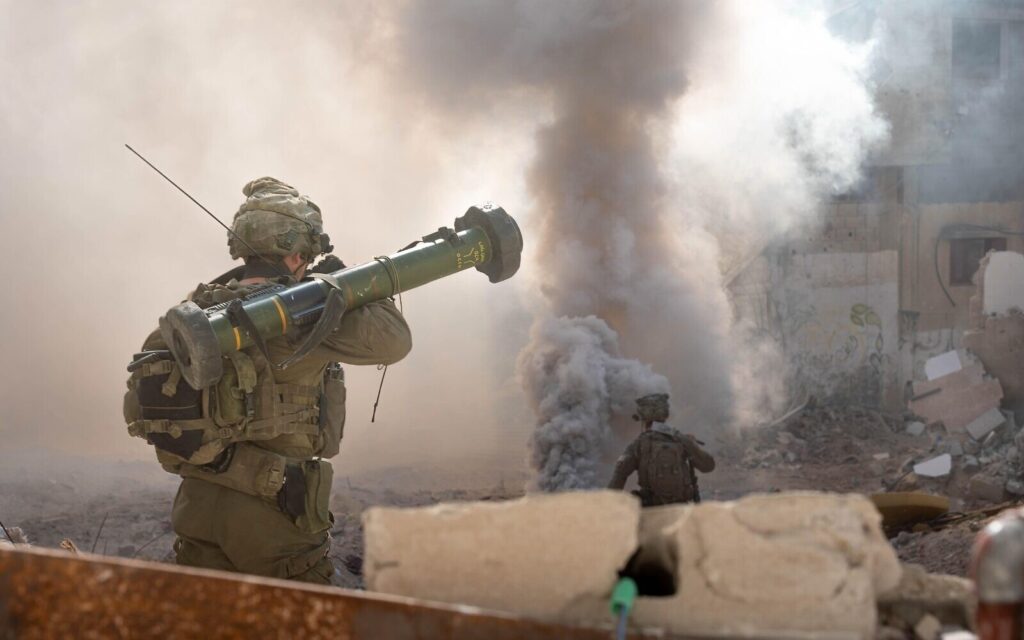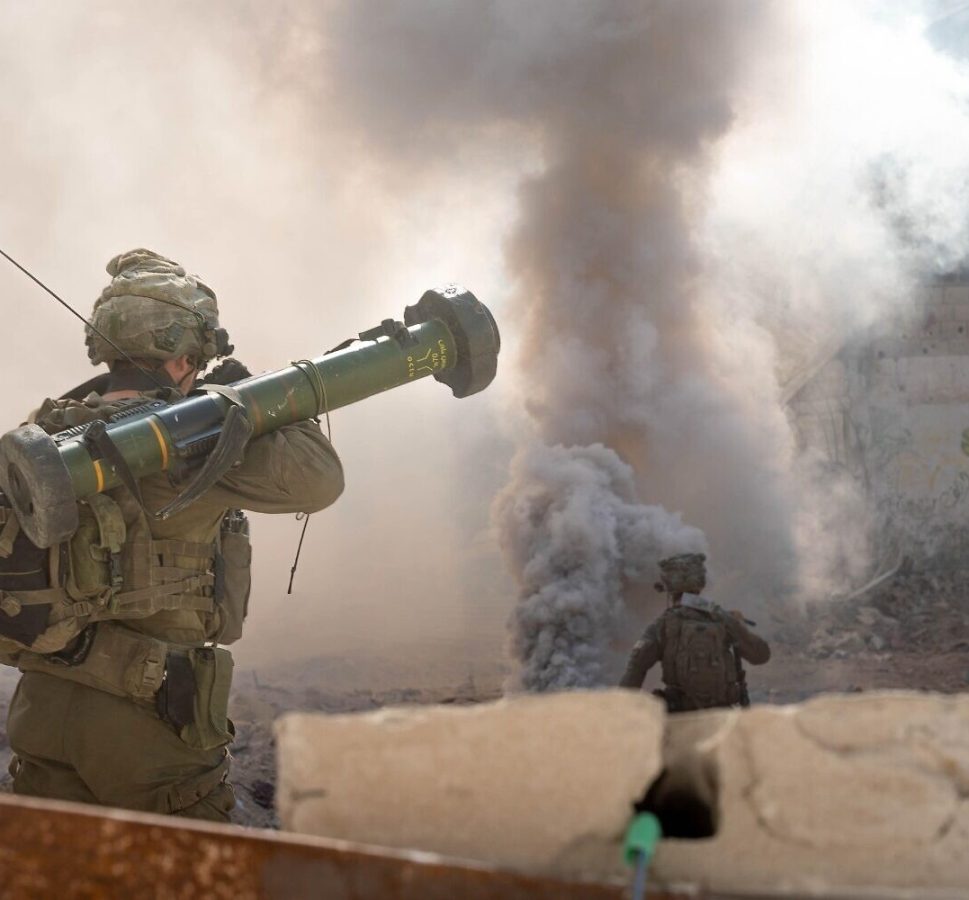
Army bulldozers didn’t detect large explosives buried deep under road in northern West Bank; most damage caused when 2nd bomb exploded as troops came to assist
(Social media)
An Israeli soldier was killed and several others were wounded by roadside bombs in the northern West Bank’s Jenin refugee camp early on Thursday, the military said.
The slain soldier was named as Cpt. Alon Sacgiu, 22, a sniper team commander in the Kfir Brigade’s Haruv reconnaissance unit, from Hadera.
The Israel Defense Forces had been carrying out an overnight raid in Jenin aimed at arresting or killing members of a Hamas terror network in the city and adjacent refugee camp. It was part of a long series of counter-terrorism operations in the area, military sources said.
According to an initial IDF probe, a Panther armored personnel carrier (APC) used by a medical force was hit by a bomb planted under a road in Jenin during the operation, at around midnight between Wednesday and Thursday.
The blast slightly hurt the soldiers inside the APC. As additional forces reached the scene and worked to evacuate the wounded soldiers, another bomb exploded, leading to the death of Sacgiu and the injury of additional troops.
Get The Times of Israel’s Daily Editionby email and never miss our top storiesNewsletter email addressGET IT
The Palestinian Islamic Jihad terror group claimed responsibility for the attack.
Damage caused to an IDF Panther APC following a roadside bomb attack in the West Bank city of Jenin, June 27, 2024 (Social media: used in accordance with Clause 27a of the Copyright Law)
In all, 16 soldiers were wounded by the bombs — one seriously, five moderately, and the rest lightly.
The slain soldier and the more seriously wounded were all outside of their armored vehicle when the second bomb went off, according to the IDF’s initial probe. The APC was largely able to protect the soldiers inside from the initial attack, with only minor injuries from the blast and smoke inhalation.
Before the APC drove along the road where the attack took place, a military D9 bulldozer and backhoe had scraped the road to uncover any potential improvised explosive devices (IEDs).
Armed groups in Jenin frequently plant IEDs under roads to attack Israeli forces carrying out arrest raids, and as such, the military rips up the roads with armored bulldozers before entering with lighter-armed vehicles.
Still, the two large IEDs were not discovered by the bulldozer and backhoe, and the military believes that they were planted much deeper in the ground than usual — around a meter and a half (5 feet) below ground. Normally, such explosives are buried a few dozen centimeters (one or two feet) under roads.
The IDF was probing how the bombs were activated, either by wire or wirelessly. Findings at the scene indicated that both methods could have been used, an initial probe found.
The military was also investigating how to detect such IEDs better and how to extract wounded soldiers from such incidents in a safer manner.
Tensions have been high in the West Bank amid the war in the Gaza Strip, which began on October 7 when thousands of Hamas terrorists attacked southern Israel under a barrage of rockets fired at population centers all over the country. They brutally killed 1,200 people, amid instances of torture and rape, and seized 251 hostages.
Since October 7, troops have arrested some 4,150 wanted Palestinians across the West Bank, including more than 1,750 affiliated with Hamas.
According to the Palestinian Authority health ministry, more than 540 West Bank Palestinians have been killed in that time. The IDF says the vast majority of them were gunmen killed amid raids or terrorists carrying out attacks.
During the same period, 21 Israelis, including security personnel, have been killed in Palestinian terror attacks in Israel and the West Bank. Another four members of the security forces were killed in clashes with terror operatives in the West Bank, including in Thursday’s incident.






